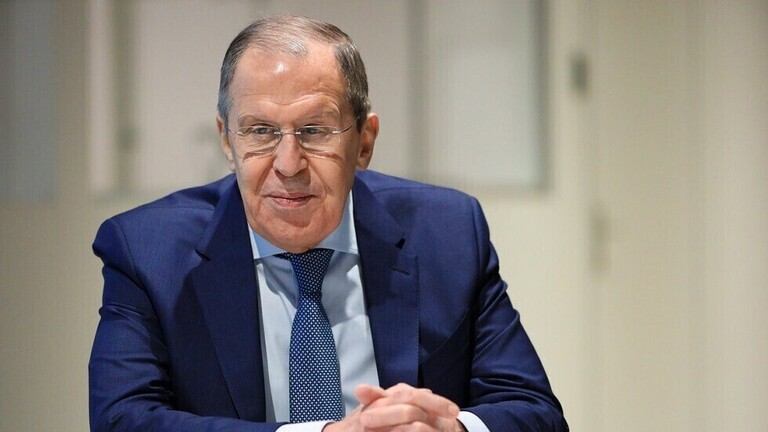Russia has shown great interest in strengthening its relations with countries in North-West Africa, as reflected by the Russian Foreign Minister Sergei Lavrov’s tour across Morocco, Tunisia, and Mauritania, last January. He is expected to make another round of visits this February, with the aim of upgrading trade relations and political cooperation, to bypass sanctions imposed by Western countries on Russia in response to its war on Ukraine.
Moscow desires to preempt Washington’s push to revitalize its ties with Africa, which the Biden Administration has announced a priority for the US, after a period during which the continent’s strategic importance was downgraded by Washington.
In view of recent developments, Russia appears to be pursuing these objectives:
Attracting Morocco’s support : By including Morocco in Lavrov’s African tour, Russia is attempting to attract Rabat’s support on a number of issues that are relevant to the African continent, particularly those related to security, and economics. Russia views Morocco to be of particular importance because of its market reach and strong connections in west Africa.
Moscow relies on two approaches to strengthen relations with Morocco support. Moscow is strengthening political cooperation with Rabat, and has in recent years taken a more neutral stance on the Sahara issue, as opposed to its previous positions. Improved relations between Rabat and Moscow were reflected in Morocco’s avoiding to condemn Russia’s war on Ukraine at the UN, or to support the imposition of sanctions . Moscow does not want to lose Morocco as an ally that offers solutions for Russia on many fronts, such as agricultural exports, and facilities regarding the movement of Russian aircraft and vessels. Morocco continues to allow Russian aircrafts to pass through its airspace after Europe’s closure of its air borders. This explains Russia’s recent positions on the Sahara issue.
Moscow has also improved relations with Morocco on the economic front. Trade between the two countries has risen dramatically in recent years, especially after Morocco’s King Mohammed VI’s visit to Moscow in 2016. Morocco has licensed ten Russian naval vessels in the last three months to fish in Moroccan waters, despite Western sanctions on Moscow.
Undermining NATO plans in Mauritania: Russia and NATO have both sought to court Mauritania’s support, and Moscow has established its position in Mali and moved towards Burkina Faso to strengthen its presence on the Atlantic coast of Africa. Russia is thereby trying to counter NATO’s attempt to encircle it from the west and east, by establishing strategic bases in North and West Africa to threaten the southern wing, both from Libya and Mauritania.
Moscow seeks to undermine NATO plans in Mauritania . The intensification of US and European military leadership visits to Nouakchott, and to the country’s northern and eastern borders with Algeria and Mali, has been of concern to Russia, particularly in view of NATO’s desire to establish a central military base in Mauritania. NATO’s aims in establishing a military base in Mauritania are not limited to combatting terrorism in the African Sahel, but extend to undermining Russian presence in this region of Africa. Hence Lavrov’s visit to Mauritania to discuss the establishment of a NATO military base on its territory, which would threaten the presence of the Russian Wagner in Mali. The visit also represents a Russian attempt to attract Mauritania, or at least neutralize it, from any anticipated conflict with the West in the African Sahel.
Moscow also wishes to establish active military cooperation with Nouakchott, particularly as Mauritania tries to capitalize on its strategic position amidst international competition, to achieve both economic and military gains. Despite its close cooperation with France and the US, Mauritania signed a military agreement with Moscow in June 2021. This military agreement would be Russia’s gateway to increasing its influence in this strategically positioned state, connecting the Maghreb region to West Africa. The agreement is also in response to France’s failure to fulfil its obligations to the G5 Sahel, both financially and militarily.
Economic cooperation with Tunisia: Despite the widespread controversy surrounding the unveiling a Russian spy network in Tunisia in July 2015, the following period witnessed an abrupt shift in relations, and attempts to improve bilateral economic and trade relations. There are efforts to reach a free trade agreement, and another to use the Russian ruble and Tunisian dinar in trade between the two countries. A maritime line between the port of Sfax and the Russian port of Novorossiysk on the Black Sea has been established, to drive Russian tourism to Tunisia, and increase Tunisian exports to Russia.
Bilateral cooperation has extended to a variety of fields in recent years, including cooperation on launching the first Tunisian satellite, Challenge 1, on 22 March 2021. However, Tunisian-Russian relations still face serious challenges in the context of a turbulent international arena . Russia has reservations regarding Tunisia’s vote in favor of a UN General Assembly resolution condemning Russia’s invasion of Ukraine, unlike Algeria and Morocco, which abstained. Tunisia explains this stance as a response to Western pressures, and Lavrov’s visit to Tunisia is viewed as an attempt to abandon reservations and reinvigorate political relations. Moreover, providing Russian economic support to Tunisia in in a time of economic crisis, which Western partners have not stepped up to alleviate, could win Russia strategic gains.
Thus, Lavrov’s round of visits is arguably linked to Moscow’s attempt to expand its range of options, as it competes with the US and European countries, particularly France, in the Sahel and West Africa. The move to develop strong relations with strategic states in North-West Africa is inseparable from the continent’s growing international importance, given new shifts in the world order following the outbreak of the Russian-Ukrainian war.

